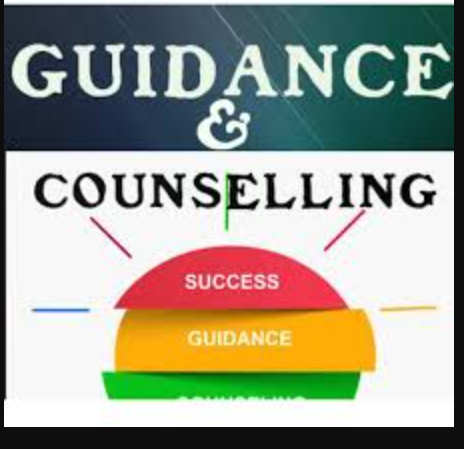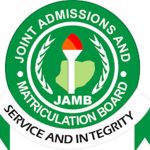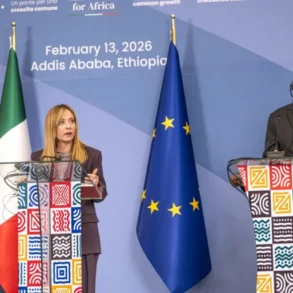Guidance and counseling serves as a guide for young people in schools, colleges, religious centers and homes. It is a veritable instrument for helping students to understand and utilize educational, vocational and personal opportunities they have or can develop and as a form of systematic assistance whereby students are aided in achieving satisfactory adjustment to school and to life.
Apart from knowledge impartation, teachers resolve behavioural problems among students as schools are challenged with complexity of misconduct, crisis and hostility. Peretomode (2019) explains that school administrators perform some tasks and responsibilities. Citing Gorton (1983), Peretomode notes that the school management provides the students with guidance and counseling services to enhance effective learning skills, as well as establishing policies, programmes and procedures to manage the students.
Read Also: Obaseki Launches Digital Museum With World’s Largest Online Repository Of Benin Artefacts
Above all, rebuilding of students through guidance and counseling eliminates disciplinary problems and motivate instructors to give absolute attention to the academic and psychological needs of students.
Mwangi (2014) notes that counseling programmes build moral uprightness and courage in students. It leads to good value, positive attitude towards self discipline and enhanced change of behaviour. In submission to the above assertion, Afande (2015) agrees that effective guidance and counseling benefited students by enhancing study skills, and focusing on the needs of students.
Read Also: Education: Ezekwesili, African Leaders Move To Tackle Learning Crisis
Guidance and Counseling services in schools are instrumental in career decision making. Investigations prove that inadequacy of guidance and counseling resources affect students in career decision making, taking into cognizance, the overall development of students.
Furthermore, it grants desirable adjustment in specific area of the learner’s personality. Guidance and Counseling includes the advice and information provided by a person of experience to solve a problem or improve on learning experience. It has to do with the process of helping students to discover, develop their potential with regards to educational objectives.
The ultimate prerequisite of guidance and Counseling is something that cannot be underscored by anyone. It helps in the development of educational, vocational, and psychological skills in an individual. It facilitates students’ optimal level of happiness and peace in life.
Read More: Yobe North: Court Confirms Machina As APC Senatorial Candidate
Taiye (2020) said that secondary school students face various challenges that if not well handled affect their academic achievement.
Therefore, in order to adequately address these challenges, emphasis has been placed on the existing programmes within the schools. Guidance and counseling have been one of these programmes.
Detailed studies are needed to evaluate the influence of guidance and counseling programmes on academic performance.
Ohen (2015) who supported the notion added that teachers should use different teaching methods because children learn and understand materials in different ways.
He said that students have different learning styles and different teaching methods should be used to ensure that needs of different learners are met. He advised that children who are not meeting up in class can be given special assistance to enable them advance in learning with others.
Citing Makinde (1984), Ijeh and Kwaja (2009) supported the notion by buttressing that guidance and counseling is a genuine health programme and effective educational therapy that can change the lives of many students with learning difficulties for better.
It makes them become useful to themselves and the society at large. They added that counseling, in no small measure, helps the learning disable to cultivate self-concept.
Guidance and counseling, therefore, aimed at bringing about maximum development and self-realization of students potential to yield desired outcome. In some schools, guidance and counseling assists students in harnessing their study abilities, interests and values. It directs students on appropriate career and subject choices, solving discipline, education, social and psychological problems as well as general adjustment to school life (Gerardo, 2006).
In the same vein, it is imperative to note that proper guidance and counseling in both primary and secondary schools uplift youngsters, especially students challenged with learning defects.
Guidance and counseling are essential elements in management of student at all levels even the most primitive societies grew out of the necessity of guiding students’ behavioural patterns to attain certain academic goals. Using guidance and counseling to enhance study skill must be continuously as students are faced with one problem or the other (Hills, 2012).
In a related development, Kodad and Kazi (2021) stress that guidance and counseling focuses on the relationships or interactions among teachers, students and their school environment to mitigate the impacts of environmental and institutional barriers on students’ study habit.
To achieve a sustainable standard in teaching and learning process as well as revamping disaster management in secondary schools, substantial counseling is required to foster teachers and students’ rapport.
Above all, guidance and counseling is projected for all persons, including adults and children. It should be opened to primary, secondary and higher institution levels.
It should also be practiced in hospitals, prisons and industries (Iyeke, 2022). Thus, the study to examine; “the relative efficacy of guidance and counseling in enhancing the study skills of Secondary School Students.”
Different examination bodies in the country ranging from West African Examination Council (WAEC), The National Examination Council (NECO), The National Business and Technical Examinations Board (NABTEB) to The Joint Admissions and Matriculation Board (JAMB) has in different occasions recorded mass failure. For example, Unified Tertiary Matriculation examination (UTME), and Joint Admissions and Matriculation Board in 2021 said it recorded poor performance by candidates.
The examination body noted that out 1, 428, 204 candidates that applied, only 168, 613 scored above 200 out of the available 400 marks.
Investigations prove that poor performance of students in internal and examinations are attributed to poor study strategies championed by limited level of guidance and counseling services.
Earlier, the blame was heaped on parents, school administrators and government. It is further observed that factors contributing to students’ failure such as; a student not having good study habits is also identified.
Many of them look for easy way out, such as engaging in various form examination malpractices to have their way rather than study hard.
Low effective attendance to lesson, note taking, failure to assignment, lack of personal reading table among others are other factors instigating poor academic performance. Many researches on study habits of students abound.
Similarly, Crede and Kuncel (2008) see study habits, skills, and attitudes as three pillars that support collegiate academic performance.
In his opinion, Pitan (2013) described study skills as an educational problem among secondary school students in the contemporary time and effective management strategies. Gettinger and Seibert (2002) while reflecting on the contributions of study skills to academic competence said the study habits of some students have not improved at all.
However, Abamba (2018) identifies some factors that could lead to poor study habits to include economy factor – the inability to provide necessary materials to meet the needs of students could culminate into poor study; this is due to lack of materials for reading/studying. Similarly, when there are no food, shelter, clothes etc., it may serve as obstacles to studying. In this instance, a student who does not take breakfast and lunch, due to the parents’ inability to serve food cannot concentrate on learning.
Culture of Reading – some Nigerian cultivated the habit of reading with about 40% of adults who has never read a book after graduating from school. Many Nigerians only read books in order to get a pass when they were in school and as soon as they graduate; they lose interest in reading (Pitan, 2013). Incidentally, parents who are not interested in reading cannot help their child develop good study habits.
Put differently, there are students whose needs cannot be met in an actual classroom situation as a result of learning difficulties. Different students have different problems ranging from low self concept, poor peer relations, withdrawal tendency to timidity, disabled, handicap among others (Ijeh and Okwaja, 2009).
According to them, education of children and adults who have learning difficulties of different sorts of handicap such blindness, partial sightedness, deafness, hardness of hearing, mental retardation social maladjustment, physical handicap etc as a result of birth, inheritance, social position, mental and physical health pattern or accident in later life. As a result, the children and adult are unable to cope with studies.
Consequently, much emphasis is placed on guidance and counseling on the development of social competence, personal adequacy, interrelationship and so on.
Guidance and counseling is, therefore, discerned to be a genuine health programme and effective therapy to revamp problems associated with study skills.
|
|








